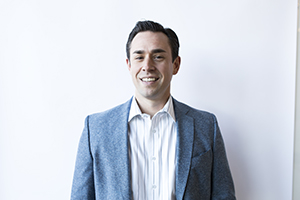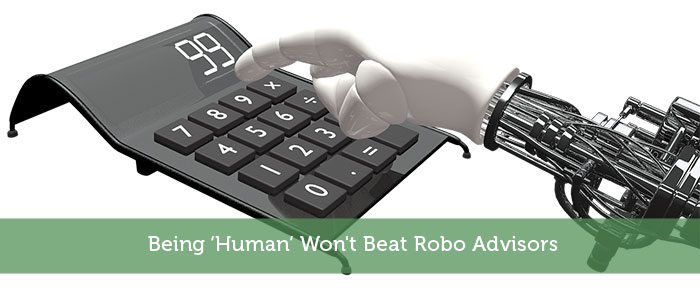By David Miller, founder & CEO of PeachCap
Are robo advisors here to stay? Yes – absolutely.
Not only are they here to stay, but they are gaining value and are likely to continue winning over consumers. According to BI Intelligence, robos will account for 10% of all global assets under management by 2020, which is estimated to be approximately $8 trillion.
The writing has been on the wall for some time now and financial services industry experts have drafted numerous responses. Steve Sanduski wrote for Investment News, “Having modern technology is table stakes, but by doubling down on your “you” advantage, you can build a moat that will protect your business from the onslaught of cheaper competitors.”
When an industry is facing disruption and you hear anyone talk about ‘doubling down’, there is reason to be suspicious. Being more of yourself is not going to keep clients coming back, let alone win new ones. The idea that everyone gets a medal for showing up and being true to themselves did not save the taxi companies, RadioShack, or Blockbuster.
Instead, the financial services industry needs to take a hard look at what it can change. Survival in the next twenty years will be dependent on correcting systemic failures and identifying areas where human professionals can add unique value. To be certain, part of the solution is adopting the robo trend and incorporating it into standard services. Every financial services firm can automate functions and provide clients with an always-on computer advisor.
When applied to managing one’s assets in an advisory capacity, artificial intelligence technology is in its infancy stage and is mostly a buzz word in our industry today. It is important that we acknowledge robos are not gaining market share because of AI alone – they are gaining market share because fees are too high relative to the value provided and financial advisors are complacent.
In addition to embracing the technology wave instead of resisting it, the industry needs to focus on two key changes: value added human connections, and professional re-training.
Value-added human connection means being more than yourself. If our last line of defense is merely being a human because the client is (Get it! We’re both human!), then the game is over. Instead, we need to imagine what a financial advisor could do to make the human connection valuable to the client in a tangible, outcome-focused way.
Advisors need to focus on developing their client’s financial emotional intelligence. Instead of merely counseling clients through big decisions, equip them with skills and knowledge that will make them more confident, progress their own financial thinking, and ultimately make them better stewards of their assets. That means gamify progress, focus on specific skills, and have a regimented educational strategy.
If the human connection is how you plan to survive the robo wave, be a value added human connection.
Many professionals will read this and already know what the biggest obstacle to this change is: training. Financial advisors in younger demographics are in short supply. The average age of an advisor today is close to 60 years old, with just 11% under the age of 35. Relevant training will ensure our industry is moving in the right direction by creating higher standards for those that wish to play in the sandbox.
Older advisors need to be re-trained, and we need to work with our educational institutions to update curriculum. We are still training young advisors like we did twenty years ago, effectively setting them and our industry up for failure. Financial firms and financial advisory practices that do not provide the right training and tools will fail.
The firms that train and embrace our young and talented millennials will dominate. It is only a matter of time. Curriculum needs to incorporate material on financial emotional intelligence, psychology, and personal development.
As an industry, we cannot default to a position of comfort by believing that human-to-human relationships will save us from increasingly sophisticated robo-advisors. Not only that, but we are ignoring a significant area in which we can provide value to our clients and help them to achieve their financial goals.
We must develop value added human connections, train our young professionals differently, and ensure clients understand how this impacts their bottom line.
Check out this robo-advisor comparison.






